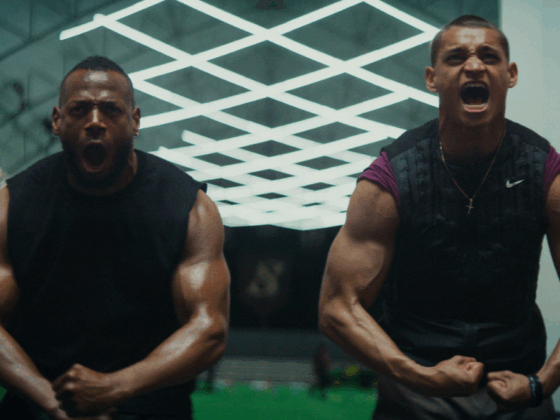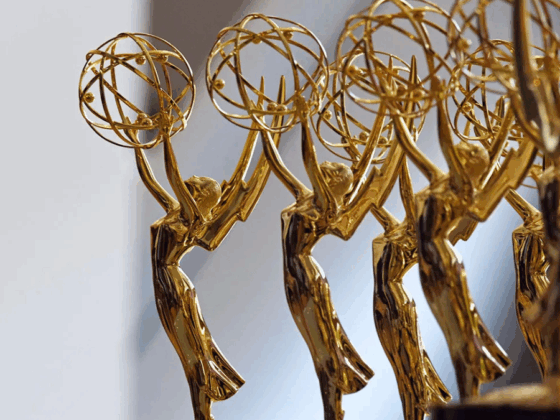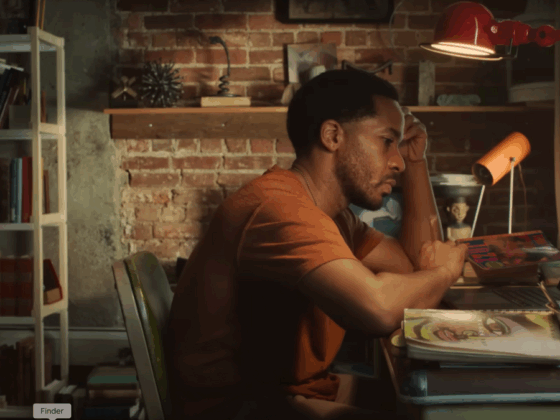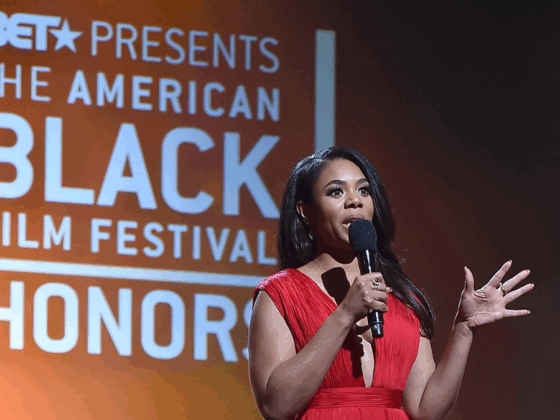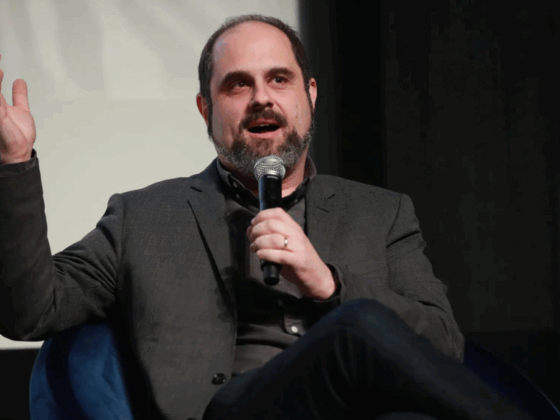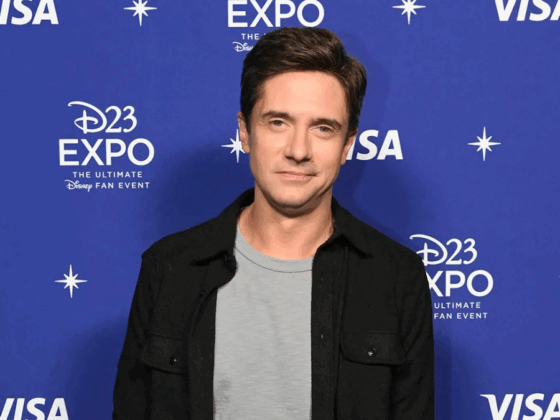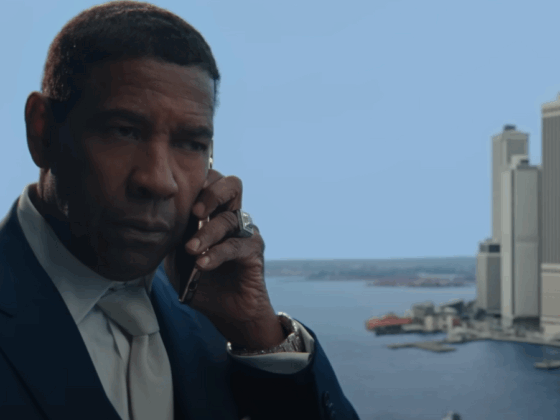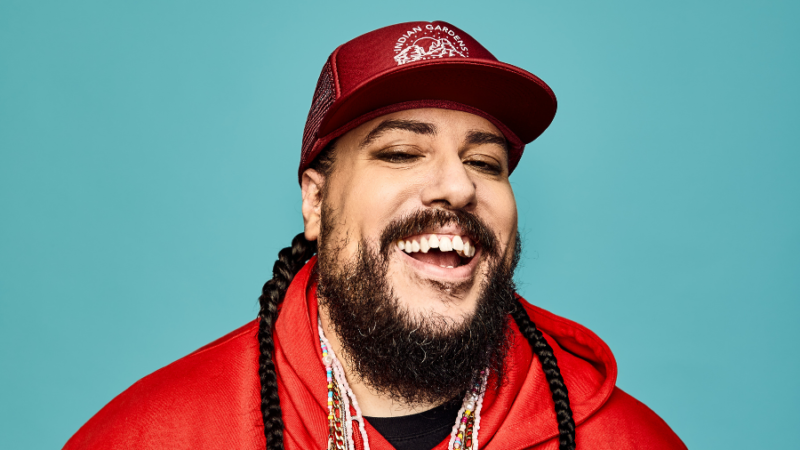
It’s the fourth quarter and Def Pen is finishing the year strong. Each morning at 10 a.m. CT, you can expect a piece of original content. Mondays are for the “Morning Mile,” Tuesdays are for “First To The Aux” features, Wednesdays are for “Album Exit Surveys,” Thursdays are for “Elevator Interviews” and Fridays are for “Overreaction Fridays.” What can you expect from “Album Exit Survey” pieces? It’s an informal variation of the traditional album review. Instead of paragraphs describing the album’s sound, we run down our initial thoughts, listening experiences, hopes, etc. in a few short questions.
Ryan Shepard: Before we talk about Phoebe Robinson: Sorry, Harriet Tubman, I kind of just want to get to know you as a person. I read that you grew up in Spanish Harlem and Puerto Rico. As someone who split their time between New York and Puerto Rico, how would you describe growing up in those two places?
Kristian Mercado: Growing up in Spanish Harlem and Puerto Rico was crazy. It was like seeing two worlds at the same time sort of. I would get city life and I would also get a taste of rural life because whenever I was in Puerto Rico, we were in what they called el Tiempo. So, I was just chillin’ on a farm. It was wild to get a distinction between the two. It was interesting to always go back and forth and have a connection to two places. I felt very much like a New Yorker, but I also felt very Puerto Rican as well. You know? There was always a duality in my life.
While I was getting ready for this interview, I also noticed that a lot of the work you do ties into either music or comedy in a variety of ways. Growing up what kind of comedians did you enjoy and what kinds of films were you drawn to?
It’s funny because I’ve been digesting a lot of random things my whole life. Growing up, in the comedy space, I was always a big fan of George Carlin, Robin Williams, Richard Pryor and Dave Chapelle. There were a lot of people who were kind of killing it at the time. Oddly enough, Jim Carrey was a crazy voice too. When he was doing his stand-up, it was so visceral and that always left an impression. Also, I think when Jim Carrey was the first time I recognized that stand-up comedians do this and do this. It was kind of like the “multifaceted-ness” of it all that was really [captivating]. [Watching] Jim Carrey was the first time it kind of popped into my head that, that was a possibility.
Speaking of childhood, you mentioned previously that one of your first movie experiences was seeing Rocky as a toddler. From what you can remember, what was that first movie experience like?
You know, it’s weird. I have these weird, vague recollections of New York back when I was growing up. It was grimier and seedier. We didn’t go out at night as much. I don’t remember what the exact word is, but it just felt like there was more tension in the air.
I remember growing up in Spanish Harlem and we were kind of like in the brownstone. It wasn’t until later in life that we went to movies a lot, but my Mom and Dad were always big fans of film. At some point, I remember they were doing some type of Rocky screening. I don’t know if it was like a first screening. It was kind of like…back then people would screen movies multiple times because they happen to have the reel. And I just remember watching Rocky for some reason. It just left an impression on me as a kid and my Dad was obsessed with boxing. So, it was a movie that he really, really liked and I ended up liking it a lot, too. It’s a great film. I can watch Rocky almost any time and be impressed by it. You know?
Trust me, I know. I mentioned Rocky because Rocky is my favorite franchise film. My ears kind of perk up anytime I hear it mentioned because that’s what got me interested in the sport of boxing. As wild and cartoonish as it may feel at times, it pulls you in.
Totally. It’s weird because you can almost see Hollywood change throughout Rocky movies because they change in tone. You know what I mean? The first one is such a 1970s indie drama. Then, the 1980s come and the franchise becomes more flamboyant like the 1980s were. So, the wild style of that kind of picks. up and it’s just funny to see how franchises change or film changes over time. I feel like Rocky is one of only a few series that goes from the 1970s to modern-day, which is wild to think about.
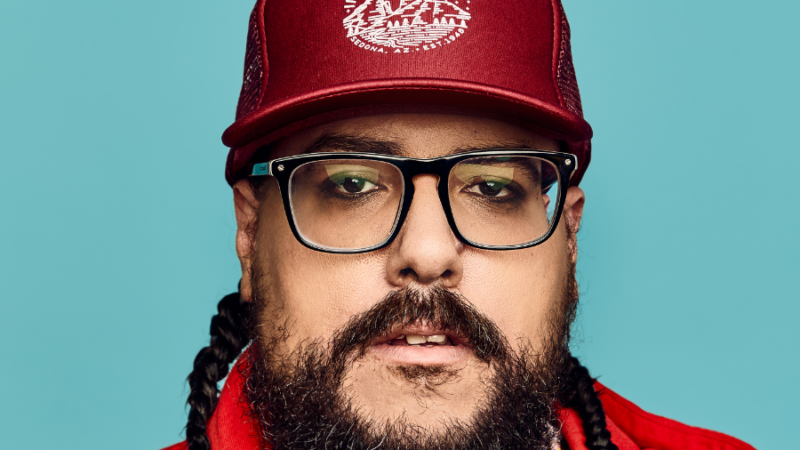
Going off of that, was there a specific moment or a period of time that made you want to make film or storytelling, in general, into a career?
I think I’ve always drawn. I was always illustrating, making things and digesting media. In a way, I just didn’t know what else to do. I always felt like happiness was just doing what you love, right? And making that what your life is, right?
I think my family wanted me to be in a more secure, normal job. So, I think they encouraged me to be an architect. I feel like being an architect is practical and it’s also art. The parents always love that. My Dad, in particular, wanted me to be a lawyer and I was just not feeling that. I felt like your parents should not decide what your life is. I just opted to follow my heart.
So, I got more involved in the arts and that’s what I dedicated myself to. Since I look at the arts in a broad scope where you can paint, design, etc., I kind of got into more of the designing aspects of art. In a way, that led me to direct. Once I started directing, it became clear that I wanted to do this. I had the idea of directing in my head at different points in my life. However, I couldn’t see myself doing it until someone at my job asked, “How do you feel about directing?” I thought, “Oh, wow! That’s interesting.” Then, they gave me an opportunity to try it. That was how it all started for me.
Over time, you transitioned into directing music videos as well. I was wondering what made you make that transition. Was it the same moment you mentioned a few minutes ago?
I wanted to do music videos because I had been doing commercials for a while and I wanted to exercise my voice in a different way. I just felt like I could exercise my voice in the way I wanted to through commercials. Instead, I felt like I could exercise my voice in the way I wanted to through longer formats. Music videos were longer and were more experimental, so I could kind of do whatever.
My first music video was really hard because I didn’t have a big budget, but I did have De La Soul. Before I made the decision to direct the video, I had asked a friend for advice. I said, “Oh, what do you think about this? I think it’s going to be difficult.” My friend said, “Yes. Say yes and then figure it out afterward.” That kind of became a life philosophy. I’d say yes and then I figure it out in the process, you know? It feels like building the plane as you’re taking off. There’s something exciting about that. You’re kind of just problem solving on the fly. Now, I feel like there’s very rarely a situation anymore where I feel like it can be solved. I always feel like there’s always a solution.
It’s interesting that you made the transition from directing commercials to directing music videos because those worlds recently merged for you. You directed a Corona commercial starring Bad Bunny that debuted during the Super Bowl. How did that come together? What was that experience like?
It was wild because I had to go to Puerto Rico to film it. It was also my first really big shoot during the pandemic. I had worked with Illana Glazer on a shoot during the pandemic and kind of gave me a little bit of footing. I started to learn about the testing and protocols that go along with a shoot during the pandemic. Everything was really strict back then because everything was so new and no one knew how this worked during the pandemic.
It was also interesting because there was no economy in the film game in Puerto Rico during the pandemic. For a lot of people that work locally there, it was their first job in a while. So, I felt a sense of responsibility to push forward on the project as much as I could because I realized how much they depended on that stuff. Jobs were coming [because of the commercial]. I felt a lot of pride working with the locals and being able to provide job opportunities when things were a little slow. That was the most fulfilling part about that job.
You’ve worked on a number of projects that are socially important. You worked on a music video that discussed the impact of Hurricane Maria and you contributed to a PSA about climate change with SZA. As a filmmaker, do you feel that you have a responsibility to speak for communities that are often overlooked?
Absolutely. I’m a little selective about what I focus on or what I want to make. I try to touch or work on things that feel meaningful to me. I also try to imagine that film can have a deeper impact. A lot of people call it the entertainment industry, but I never thought about it that way. I’ve always thought it was bigger than entertainment because you can change people’s perspectives. You can change people’s views. You can change the way the world views things. I think film is the prism in which we digest reality. It’s a deep obligation to be a part of that and there’s a social aspect to that for sure. Film can influence culture. It can decide what’s cool and what’s cool. It can decide who’s seen and who’s not seen. For me, I think it’s always important to emphasize the work you feel good about and the things you believe in. I try to do that the best I can.
So far, we’ve talked about music videos, PSAs and commercials you’ve been a part of. The only thing left is to talk about film. Recently, you’ve led specials for Michael Che and Phoebe Robinson. Having worked on a variety of different visuals, what’s the difference between working on a music video as opposed to a comedy special?
The most important thing about doing a comedy special is that it has to be true to the voice of the comic. You’re kind of finding out what they’re about and what they’re trying to say while finding the cinematic language to complement that. In a way, I actually do find that similar, to some degree, to working with a musician. When you’re working with somebody who’s kind of a musical talent, they’re kind of creating a visual vocabulary that establishes who they are as an artist. That’s something the comedy space may need to think about some more, you know? I think the material does that, but I don’t know if the visuals do it enough. I kind of push for that myself. This comic spent maybe one or two years, sometimes three, [building that special]. Actually, you don’t know how long sometimes. Sometimes, a comic could spend five years building that hourlong special. And I feel it’s kind of a throw away, if you don’t give it a thought. I feel like I try to always be mindful and ask, “What am I working on?” I also try to pay attention to the material and think about how I reflect it cinematically.
The last thing I wanted to ask you about comedy specials has to do with an experience a few months ago. I had the opportunity to see Lil’ Rel Howery while he was shooting a comedy special in Nashville. Towards the end, he kind of went off on a tangent about another celebrity. As he was talking, he told the crowd, “This isn’t going to be in the special.” Right? So, I wanted to ask you about that. For a comedy special, there’s a starting point, but there’s no clear ending point. Depending on the crowd and what’s going on in the world, things can go in different directions. As a director, how do you decide where you keep and what you get rid of?
It’s really up to the comics. They can extend their material if they want. If they want, they can riff and they can do crowd work. There’s a lot of ways that the comedian can explore their material. You know? Sometimes, I think the most exciting parts of any comedy show are unscripted. It’s impressive when you have a tight set. It’s almost perfect, but it’s also cool when the set can flip in any moment. Comedy is such an interesting art form because there are loose moments when the comic kind of finds something in the crowd. You kind have to allow space for that to exist. Afterward, you can kind of decide what works and what doesn’t. You can edit and clean it up a little bit.
I want to end it here. We’ve talked about a number of things you’ve worked on. You’ve also won a number of awards and received a ton of accolades for your work. When you’re working on a project, what do you want to get out of it? Is it acknowledgement from your peers? Awards? Internal satisfaction?
The thing I want the most is for people to connect with the work and feel an emotion. That’s what I strive for. Above all else, I want to make people feel something. That’s what I try to accomplish. With that said, it’s one of those things that is hard to accomplish. It’s easy to say, but it’s hard to do. Still, it’s what I am for the most. I want people to take a piece of my work and have an experience with it. I want them to walk away and have it stick with them. Through that, maybe they can add to the dialogue or my work start a dialogue. You know?

